Photographs: Rediff Archives Bhupesh Bhandari
Earlier this month, the Central Bureau of Investigation, or CBI, registered a first information report against Naveen Jindal and Dasari Narayana Rao, the former minister of state for coal.
The allegation is that Mr Jindal's companies (Jindal Steel and Power, Gagan Sponge, Jindal Realty and New Delhi Exim) bought shares of Saubhagya Media, a company owned by Mr Rao, at Rs 100 apiece when the quoted price was just Rs 28. These, the CBI has alleged, were kickbacks for allotment of a coal block in Jharkhand.
Of course, these are just allegations at the moment and can be contested in a court of law. What is worth noting is that this is the fourth such allegation made by the CBI in the last couple of years.
In October 2011, the CBI said that a company called Astro All Asia Networks, a firm related to Malaysian telco Maxis, had invested Rs 629 crore in Sun Direct, the DTH arm of the Maran family, between February 2005 and September 2008.
...
The unholy nexus between business and politics
Image: Kalanithi Maran receiving an award from Prime Minister Manmohan Singh.Photographs: Courtesy, Sun Network
Shares of Rs 10 were issued to Astro at a premium of Rs 69.57. During the same period, Kalanithi Maran and his wife were issued shares at par. The premium paid by Astro was based on the valuation of Sun Direct done by ENAM Securities: it had put the company's enterprise value between Rs 3,446.76 crore and Rs 4,039 crore.
The CBI felt that the premium was unreasonable given that the company hadn't even started operations during that period. The valuation was even higher than Tata Sky, which had 50 per cent market share and was worth Rs 2,500 crore at that time. In the CBI's view, the real value of Sun Direct wasn't more than Rs 400 crore.
This led the CBI to conclude that it was "not truly a commercial business". In May 2011, C Sivasankaran had walked into the CBI headquarters in Delhi and announced that he was arm-twisted by the Marans into selling his telco, Aircel, to Maxis in December 2005. (Dayanidhi Maran was telecom minister from 2004 to 2007.)
...
The unholy nexus between business and politics
Image: Dayanidhi Maran.Photographs: Kamal Kishore/Reuters
Dayanidhi Maran had said that "nobody can force anyone to sell his business" and that Mr Sivasankaran had put Aircel on the block even before he became telecom minister.
Let's now come to the third case. While investigating the 2G scam, the CBI unearthed another money trail. Swan Telecom had got telecom licence and spectrum for 15 circles in 2008 when Andimuthu Raja of the Dravida Munnetra Kazhagam (DMK) was telecom minister.
The company soon offloaded a 45 per cent stake to Abu Dhabi's Etisalat for Rs 3,600 crore (Rs 36 billion). The CBI found that Dynamix Realty and two other group companies had transferred Rs 209.25 crore (Rs 2.09 billion) to Kusegaon Fruits and Vegetables in 16 instalments between December 2008 and August 2009.
Kusegaon then gave Rs 200 crore (Rs 2 billion) to Cineyug Films between August 2009 and December 2009. Cineyug, in turn, invested the money in the DMK's Kalaignar TV. In December 2010, the CBI alleged, once it started investigating Mr Raja for his role in the scam, the money began to flow in the reverse direction.
...
The unholy nexus between business and politics
Image: YSR Congress President Jaganmohan Reddy with mother VijayalakshmiPhotographs: Snaps India
The transfers were shown as loans, and interest was paid at every step. The DB group maintains this was a genuine deal. Kalaignar TV, after all, was the sole rival to Sun TV, and hence the investment made sense.
The idea was to buy 27 to 34 per cent of Kalaignar with the Rs 200 crore. But Grant Thornton in June 2009 valued Kalaignar TV at between Rs 765 crore and Rs 846 crore. This would have fetched the DB group 23 to 26 per cent. Hence it recalled the investment.
The CBI is also investigating India Cements' investment of Rs 135 crore in Bharathi Cements and Jagati Publications, companies promoted by Jagan Mohan Reddy, the son of former Andhra Pradesh chief minister Y S Rajasekhara Reddy. India Cements exited Bharathi Cements two years ago.
...
The unholy nexus between business and politics
Image: Supporters of veteran Indian social activist Anna Hazare wave placards during a protest rally against corruption in Mumbai.Photographs: Reuters
The CBI has alleged that the investment was a favour done to Mr Reddy after the Andhra government provided water from the Krishna river to India Cements' factories in the state.
N Srinivasan, vice-chairman and managing director of India Cements, has refuted the allegations and said that the factories were getting water even before the elder Mr Reddy came to power in 2004, and his company is not the only one to get water from the Krishna.
These could well be purely commercial transactions. It is for the courts to decide. What they do show conclusively is how the dividing line between business and politics has blurred, and how this has opened new vistas for such co-operation.
Anti-corruption activists say there has been a spurt in investments by businessmen in companies run by politicians and their family, relatives and friends.
...
The unholy nexus between business and politics
Photographs: Reuters.
Some of these could be shell companies. You can't fault politicians for getting into business in a free country, so long as they maintain full transparency about it and disclose their interests wherever required. But this is seldom done. All indications suggest that the unholy nexus between business and politics has taken a whole new form.
Those leaders who don't have a business are happy to receive donations for their non-governmental organisations (NGOs). Last year, while investigating the Karnataka mining scam, the CBI found that JSW Steel had donated Rs 100 crore (Rs 1 billion) to an NGO run by the family of former chief minister B S Yeddyurappa.
Tailpiece: The CEO of a diversified company got the shock of his life when the peon of a ministry he needed to visit frequently returned his Rs 100 tip. "I know business is bad. Perhaps next time," he told the shell-shocked CEO. This gives you an indication of how greed has multiplied.

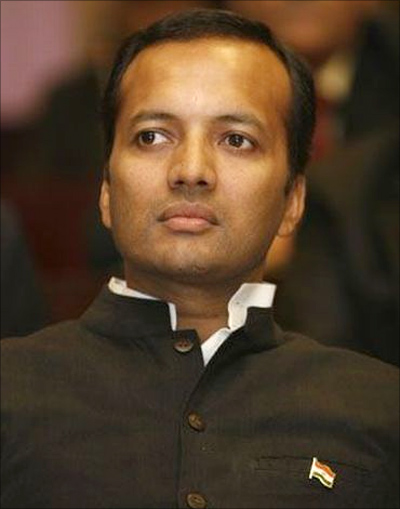
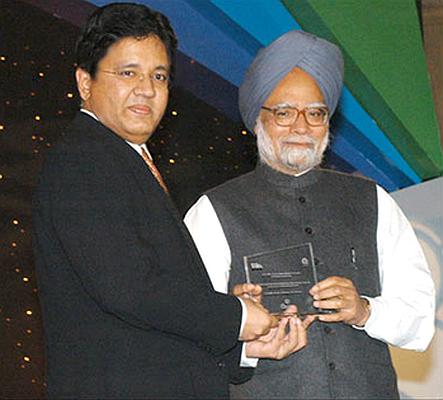
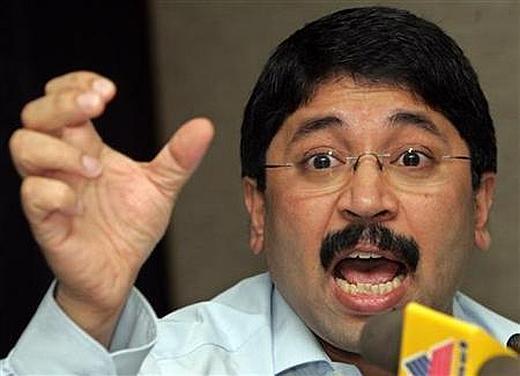
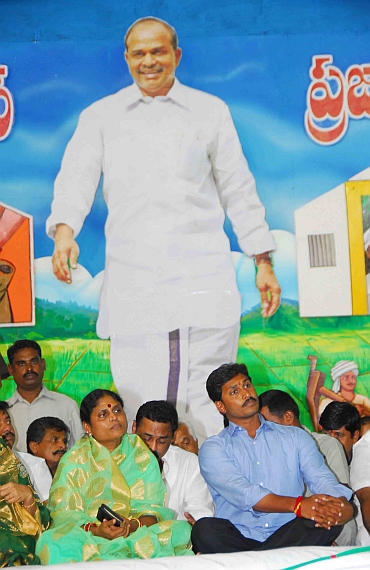
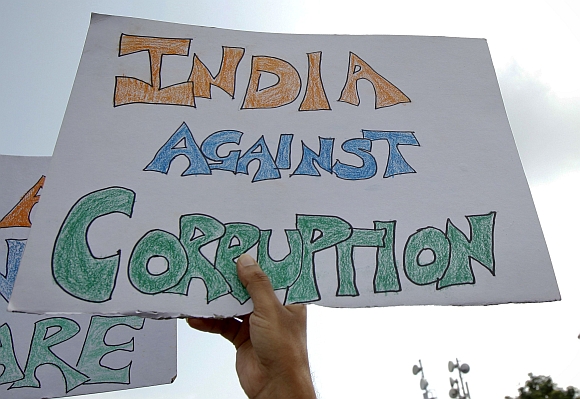
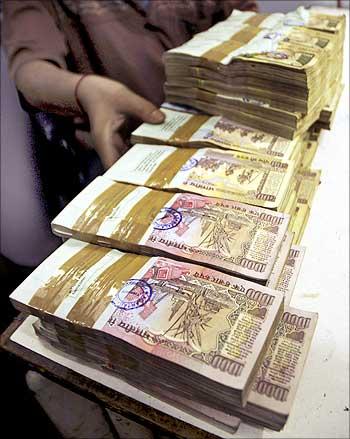

article